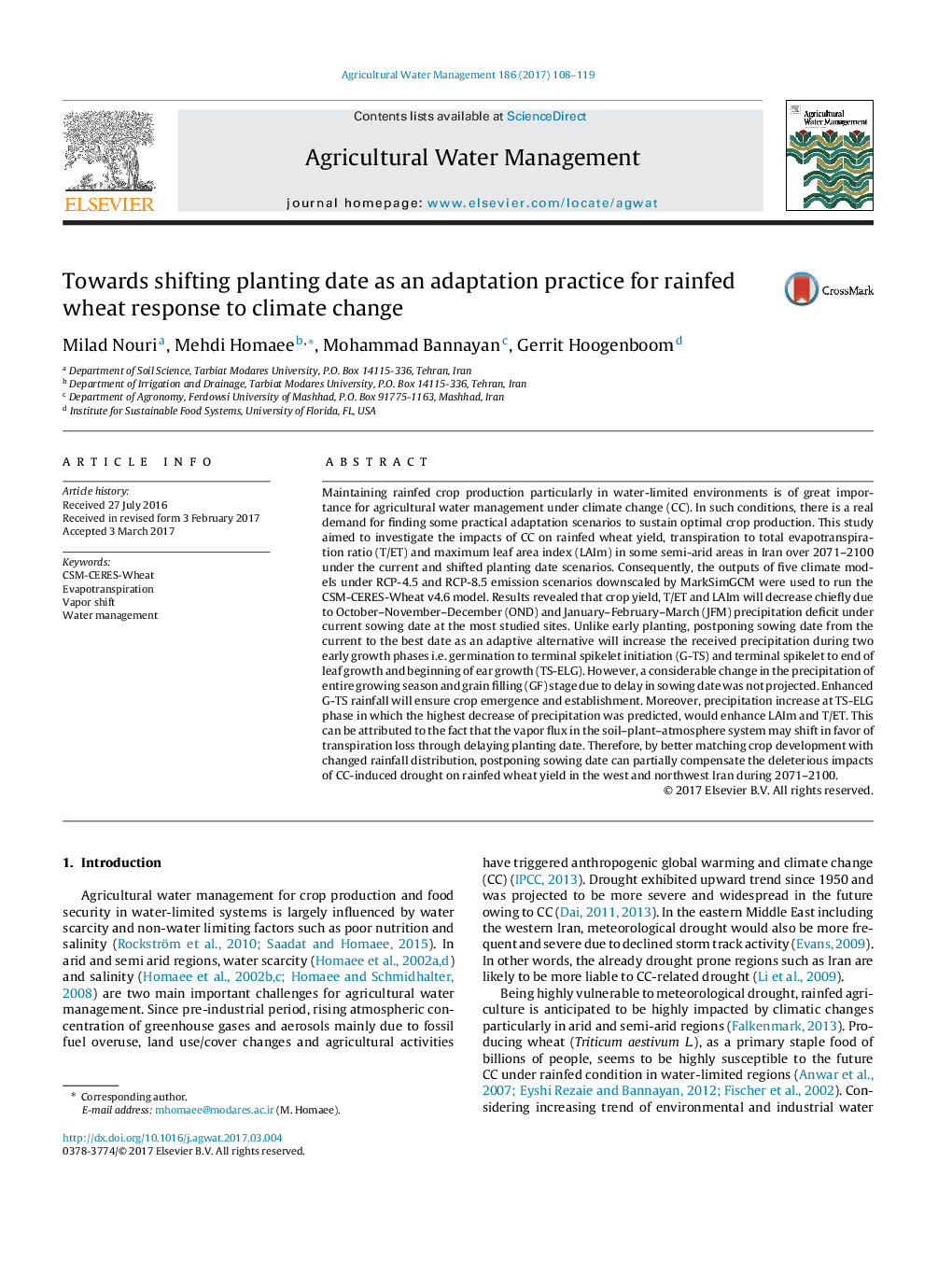| Article ID | Journal | Published Year | Pages | File Type |
|---|---|---|---|---|
| 5758540 | Agricultural Water Management | 2017 | 12 Pages |
Abstract
Maintaining rainfed crop production particularly in water-limited environments is of great importance for agricultural water management under climate change (CC). In such conditions, there is a real demand for finding some practical adaptation scenarios to sustain optimal crop production. This study aimed to investigate the impacts of CC on rainfed wheat yield, transpiration to total evapotranspiration ratio (T/ET) and maximum leaf area index (LAIm) in some semi-arid areas in Iran over 2071-2100 under the current and shifted planting date scenarios. Consequently, the outputs of five climate models under RCP-4.5 and RCP-8.5 emission scenarios downscaled by MarkSimGCM were used to run the CSM-CERES-Wheat v4.6 model. Results revealed that crop yield, T/ET and LAIm will decrease chiefly due to October-November-December (OND) and January-February-March (JFM) precipitation deficit under current sowing date at the most studied sites. Unlike early planting, postponing sowing date from the current to the best date as an adaptive alternative will increase the received precipitation during two early growth phases i.e. germination to terminal spikelet initiation (G-TS) and terminal spikelet to end of leaf growth and beginning of ear growth (TS-ELG). However, a considerable change in the precipitation of entire growing season and grain filling (GF) stage due to delay in sowing date was not projected. Enhanced G-TS rainfall will ensure crop emergence and establishment. Moreover, precipitation increase at TS-ELG phase in which the highest decrease of precipitation was predicted, would enhance LAIm and T/ET. This can be attributed to the fact that the vapor flux in the soil-plant-atmosphere system may shift in favor of transpiration loss through delaying planting date. Therefore, by better matching crop development with changed rainfall distribution, postponing sowing date can partially compensate the deleterious impacts of CC-induced drought on rainfed wheat yield in the west and northwest Iran during 2071-2100.
Keywords
Related Topics
Life Sciences
Agricultural and Biological Sciences
Agronomy and Crop Science
Authors
Milad Nouri, Mehdi Homaee, Mohammad Bannayan, Gerrit Hoogenboom,
